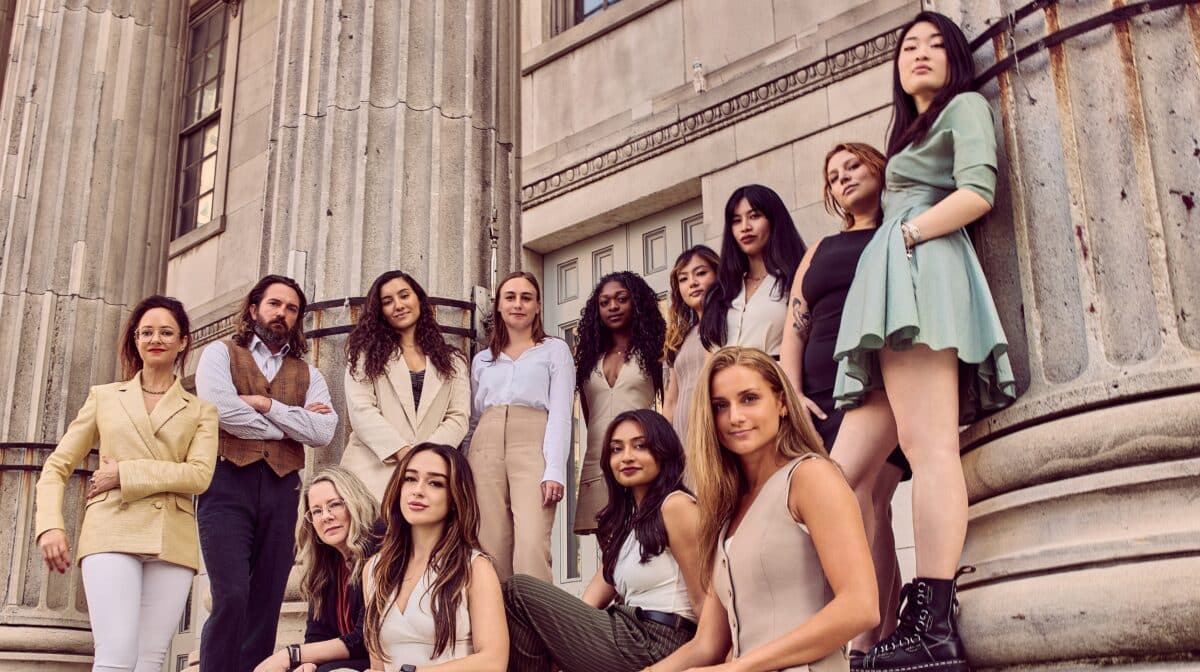May is Mental Health Awareness Month. Our Chief of Staff, Norma Buster, reflects on the importance of taking care of one’s mental health while in the midst of legal action.
As a law firm that fights for victims of sexual, domestic, and tech-facilitated harms, we know our clients often need more than legal representation – many times, they’re going through something terribly traumatic. So their mental health is just as important as their legal battle.
May is Mental Health Awareness Month, but to us, the mental health of both our clients and our staff are a priority every day.
Since I started here as Client Relations Coordinator in 2018, I’ve listened to thousands of survivors tell me about what they’re experiencing and how it affects them. We discuss how their problem is impacting their time, money, reputation, and mental health. Oftentimes, it’s affecting all areas, but compounding on their mental health. I like to ask how they’re taking care of themselves, and I enjoy finding referrals for therapists who can truly support the people I speak with.
I know firsthand how crucial that support – the RIGHT support – can be. I started seeing my current therapist in 2020 during the pandemic via Zoom. She’s AASECT-certified, which means she has training and experience with human sexuality, a lifeline for me as a survivor. She creates a nonjudgmental space where I can work through challenges, and she calls me out when it’s my anxiety talking.
We’re not mental health professionals, but it’s crucial that our team understands that survivors come to us with significant trauma and the stress of pursuing legal action – deep emotional burdens that can take a significant toll on one’s mental health. In our initial conversations with survivors, we are mindful of their mental health needs and approach each case with empathy, knowing there’s no one-size-fits-all path to finding them the right support.
By the time a survivor contacts us, they might be:
- In the aftermath of a sexual assault, still processing or in shock in the days after, or months or years later w/ descriptions of PTSD manifesting in flashbacks, nightmares, and struggles with intimacy
- In a state of exhaustion and/or desperation, after months or years of being the target of someone’s obsession that’s escalated to stalking
- Grieving their child or loved one lost to suicide by a chemical purchased online.
Often, when survivors seek help, they’re met with shaming and blaming, if they’re listened to at all. Survivors tell me regularly about being laughed at or humiliated when talking with police officers at the precinct. Or they describe facing retaliation at the workplace or punishment at school when they try to report to those in positions of authority. Not to mention the social impact – we often work with young people exploring the potential social ramifications of different courses of legal action, a huge consideration for them when taking the next step.
And it continues through the legal process. When we file a lawsuit on behalf of a client, the complaint is an opportunity for the survivor to take control back. But then litigation involves a lot of waiting. The opposing side often files motions to dismiss (MTD) to try to quash a suit at early stages, which requires us to file oppositions to these MTDs to fight back. And decisions are ultimately in the hands of the judge, who may or may not have a history and perspective that’s favorable to our client.
If a case makes it to discovery, past MTDs filed hoping to shut it down before that point, it means we get our hands on important private files and communications from the opposite side that might help build our case. But it’s also often incredibly invasive for the plaintiff, our client, as it means our client must hand over private conversations to opposing counsel – in this way, discovery can be its own form of a violation, as necessary as it is to bring a case forward.
A positive outcome in a criminal or civil matter can help a survivor to feel validated and believed. But if the outcome is insufficient, or not ruled in the survivor’s favor, it can be devastating. Sometimes survivors internalize this rejection from the legal system. I often explain to people when I meet with them that a negative legal outcome (or even a lack of legal options available) does not make someone’s trauma any less valid. It just means we have a flawed system where abusers are sometimes able to get away with it. And the punishment may not hold the same weight that the original crime still does in the survivor’s life.
For those grieving their child or loved one, there’s no judgment in court or amount of money in the world that can bring their loved one back.
Our clients are more than just legal cases. When we start working with a client, we begin a journey of ups, downs, waiting, tears, and ideally, healing and being made whole.
But our team is full of legal advocates and attorneys, not mental health professionals. That’s where we lean on our referral network, for which we are so grateful. We know that a client’s healing journey is only just beginning by the time they’ve come to us – so it brings us peace to know a client is being taken care of and supported on all fronts, mental health included.
If you want to speak with someone regarding possibly taking legal action, please contact us here. We’re here for you when you’re ready to take the first step. You can also check out our resources page for more information.




